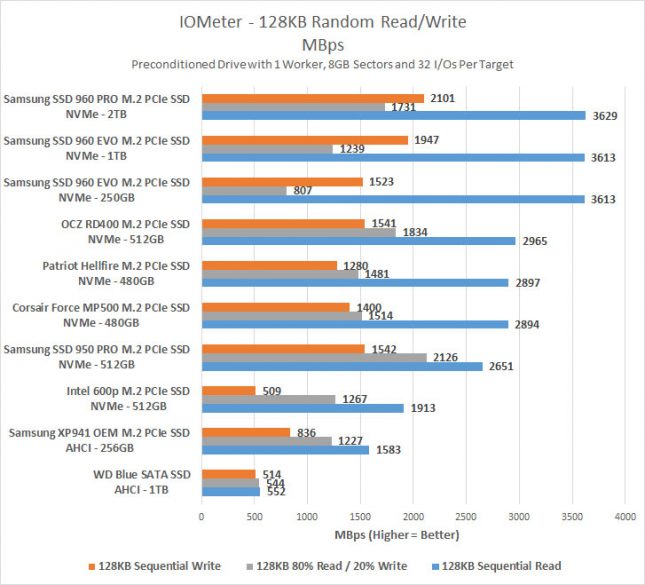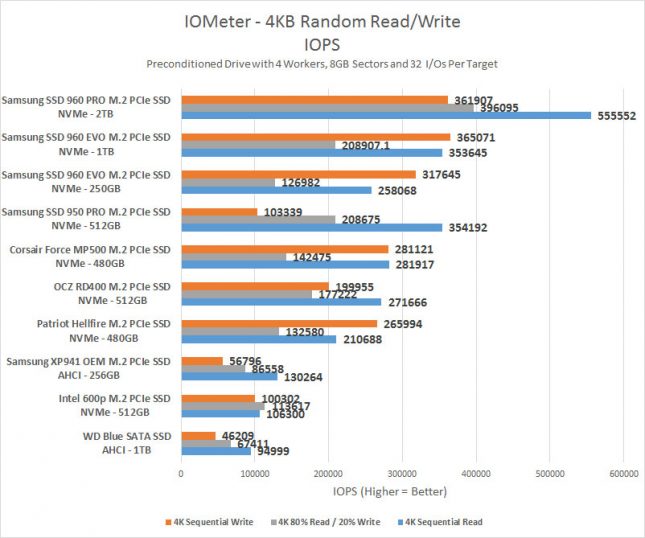Corsair Force MP500 480GB M.2 NVMe SSD Review
IOMeter Sequential and 4K Random Performance
IOMeter Sequential Performance
Legit Reviews is once again adding IOMeter v1.1.0 testing to our Solid-State Drive reviews as we feel that the canned benchmarks no longer show enough of the performance picture nor do they expose many of the heat issues that we are starting to encounter on M.2 PCIe SSDs and sustained write issues on TLC NAND based drives. We start out testing each drive with IOMeter, but first we prepare the drive. This is done by using Parted Magic to complete a full Secure Erase each and every drive. Next we use IOMeter to prefill the drive by performing the industry standard 128KB, aligned, sequential write workload across the entire drive for a period of 30 minutes. Once the drive is conditioned we run our saved sequential test profile that runs our 128KB test for one minute with a five second ramp time before each test. The queue depth is set to 32 as we feel with NVMe drives starting to come out that we need to increase our IO depth.
The 128KB Sequential Read/Write test is done primarily to make sure the drives we are testing meet or surpass the manufacturer specifications for sequential Read/Write performance. The Corsair Force MP500 M.2 480GB drive is rated at 3GB/s read and 2.4 GB/s write and we were able to get 2.9 GB/s read and 1.4 GB/s write when performing each test for a period of 1 minute. Not nearly as high as the drive is rated, but still pretty respectable scores.
IOMeter 4K Random Performance
When it comes to 4K Random Read/Write IOPS, the Corsair Force MP500 M.2 480GB PCIe SSD is rated at 210,000 IOPS for Random Write and 250,000 IOPS for Random Read. We got 282,000 IOPS for the 4K Random Writes and 281,000 IOPS for the Random Read IOPS and that is well above the specifications. The 80/20 mixed workload test that we ran dropped the performance down to 143,000 IOPS, but it was still a very solid score.
So, the sequential performance was below what Corsair measured, but the 4KiB random performance was higher.


